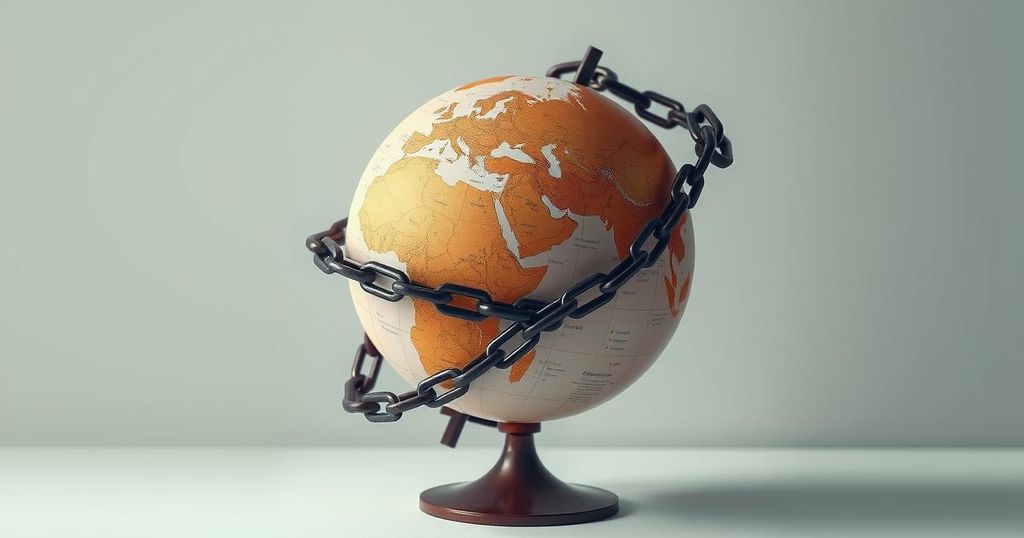Trump Re-Designates Houthis as Foreign Terrorist Organization
US President Donald Trump has re-designated the Houthis as a Foreign Terrorist Organization, citing threats to American interests and global maritime stability. This decision, which reverses a previous lift of the designation by President Biden due to humanitarian concerns, affects USAID’s operations and raises alarms about humanitarian aid accessibility in Yemen. The Houthis continue to engage in aggressive actions in the Red Sea amid ongoing conflicts with Israel.
US President Donald Trump has re-designated Yemen’s Houthi movement as a Foreign Terrorist Organization (FTO). An executive order cites that the Houthis pose a threat to American civilians, regional allies, and global maritime trade stability. This re-designation mandates the US Agency for International Development (USAID) to cease engagements with partners who have financially supported the Houthis or criticized counter-efforts against them, which could hinder humanitarian operations in Yemen.
This designation follows former President Biden’s 2021 decision to remove the Houthis from the FTO list to alleviate one of the world’s most severe humanitarian crises. The Houthis have escalated their military activities since their takeover of north-west Yemen a decade prior, amid significant civilian strife that has resulted in approximately 150,000 fatalities, 4.8 million displaced individuals, and half of Yemen’s population—19.5 million—requiring assistance.
Although the Houthis have faced airstrikes and naval protection efforts from Western nations, they have continued targeting maritime assets in the Red Sea and Gulf of Aden. Their motives are linked to ongoing conflicts with Israel and Hamas in Gaza. The Houthis argue they are solely attacking vessels linked to Israel, the United States, or the United Kingdom, despite reports substantiating their assaults on multiple merchant ships.
In addition to the FTO categorization, the Houthis retain their Specially Designated Global Terrorist (SDGT) status, requiring US financial institutions to evaluate and freeze their funds. This designation exposes anyone suspected of auditing or supporting the Houthis to prosecution under US terrorism laws. Human rights organizations have expressed concerns regarding the potential hindrance of humanitarian efforts in Houthi-controlled regions.
In response to Trump’s decision, Abdul Rahman al-Ahnumi of the Houthi-controlled media stated that such actions would be treated as a declaration of war, indicating their intention to respond with similar escalatory measures. On the other hand, Rashad al-Alimi, head of Yemen’s internationally recognized presidential council, expressed gratitude to Trump, asserting the designation’s significance for accountability and an essential step towards achieving regional stability.
The Houthis, officially known as Ansar Allah, have been engaged in a protracted civil conflict in Yemen since 2014. Their rise to power sparked domestic unrest and intervention by a Saudi-led coalition. The conflict has since resulted in extensive humanitarian crises, with millions affected. The changing designations by US administrations reflect the complexity of balancing geopolitical interests, regional security concerns, and humanitarian imperatives in a volatile conflict zone.
The re-designation of the Houthis as a Foreign Terrorist Organization underscores the escalating tensions regarding their activities that threaten maritime security and regional stability. While efforts to curb their influence may aim to safeguard American interests, they also risk exacerbating the humanitarian crisis within Yemen, as indicated by various organizations. The response from both Houthi leadership and Yemeni officials highlights the ongoing complexities embedded in the conflict as it continues to evolve.
Original Source: www.bbc.com








Post Comment